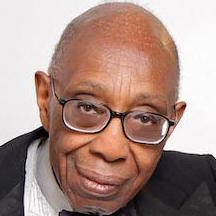 George Walker, a Pulitzer prize-winning composer, passed away on August 23 at the age of 96. He taught at many higher education institutions throughout his career and was an outspoken critic of discrimination in the music industry.
George Walker, a Pulitzer prize-winning composer, passed away on August 23 at the age of 96. He taught at many higher education institutions throughout his career and was an outspoken critic of discrimination in the music industry.
Born in 1922, Dr. Walker graduated from high school at the age of 14 and went on to study piano and organ at Oberlin College in Ohio. After graduating from Oberlin in 1941, he was accepted to the Curtis Institute of Music in Philadelphia and became the first Black graduate of the school in 1945.
After graduation, Walker began a successful career as a concert pianist. He was the first Black musician to present a recital at Carnegie Hall and the first Black instrumentalist to perform with the Philadelphia Orchestra. Additionally he was the first instrumentalist to obtain major concert management, with National Concert Artists. This allowed him the opportunity to tour across America and seven European countries.
However, Dr. Walker felt that his opportunities were severely limited in comparison to White performers of his time. In 1987 he stated, “I’ve benefited from being a Black composer in the sense that when there are symposiums given of music by Black composers, I would get performances by orchestras that otherwise would not have done the works. The other aspect, of course, is that if I were not Black, I would have had a far wider dispersion of my music and more performances.”
In addition to his career as a performer, Dr. Walker had an extensive career in education. In 1956, he became the first Black student to earn a doctorate from the Eastman School of Music at the University of Rochester. He began teaching in 1960 at the New School for Social Research. He later taught at Smith College, where he became the first Black faculty member to earn tenure. He also went on to teach at Rutgers University, Dillard University, the University of Delaware, the University of Colorado, and the Peabody Institute.
Dr. Walker composed nearly 100 pieces over his lifetime. One of his most famous is Lyric for Strings which was inspired by the death of his grandmother, a former slave. In 1996, he became the first African American recipient of the Pulitzer Price for Music for his song cycle Lilacs.










